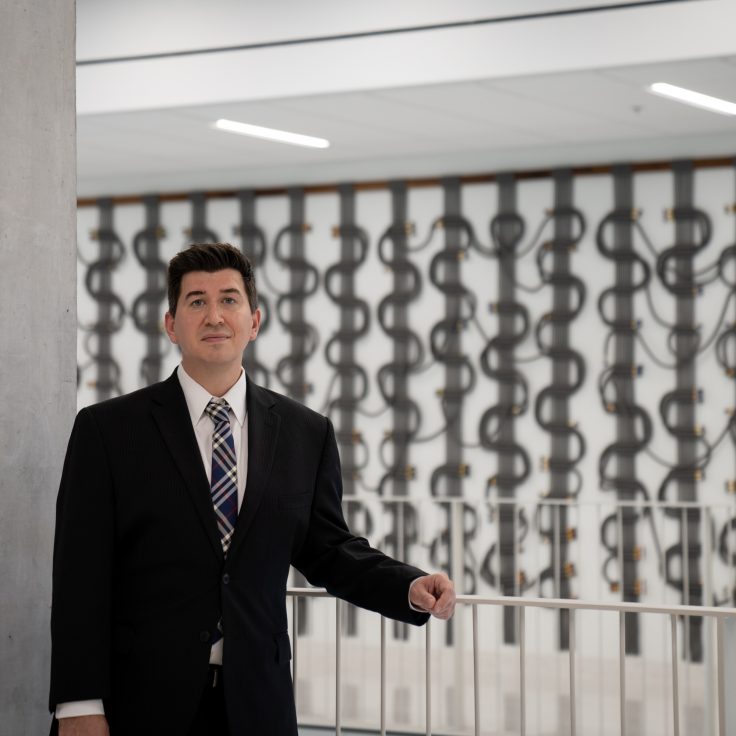WATCH: The Pitfalls and Potential of Criminal Justice AI
Philosophy professor weighs the ethics of predictive policing and algorithmic sentencing
Video by Peyton McElaney and Pristina Kuo
Police departments and courts around the world have begun looking to artificial intelligence to prevent crime and sentence offenders, but “predictive policing” and other AI systems present their own ethical issues.
Duncan Purves, assistant professor of philosophy, notes that even as these systems have been increasingly adopted, many questions remain about their effectiveness.
“One of the major critiques of predictive policing systems is that the evidence base is just not there to confirm that it’s actually better at preventing crime than human crime analysts,” Purves said in a workshop on the ethics of Criminal Justice AI. “Its efficacy is incredibly understudied.”
Purves was recently awarded a grant from the National Science Foundation (opens in new tab) to study the ethics of using AI to assist police officers in anticipating crime before it happens. He and his colleagues intend to develop a report that will inform best practices for its use by departments.
“Its efficacy is incredibly understudied.”
“We’re hoping to reach police departments to try to start a conversation with them,” Purves said.
While algorithmic systems do pose new ethical dilemmas, they also offer the potential for more transparency in law enforcement and sentencing decisions.
“People often talk about the opacity or the lack of scrutability of these systems,” Purves said. However, he noted that the software COMPAS, for example, scores the risk of reoffending for defendants based on factors that are publicly available. “You can tweak the weight of those factors in order to help fix or address some of the issues of bias.”
It remains to be seen whether these systems will reduce bias in practice, but an algorithm offers the opportunity to make adjustments for a fairer criminal justice system.
“That is in some ways an improvement over human decision-makers because we don’t know, really, what’s going on in, say, a judge’s head,” he said.
View video from more CLAS AI Workshops here (opens in new tab).


